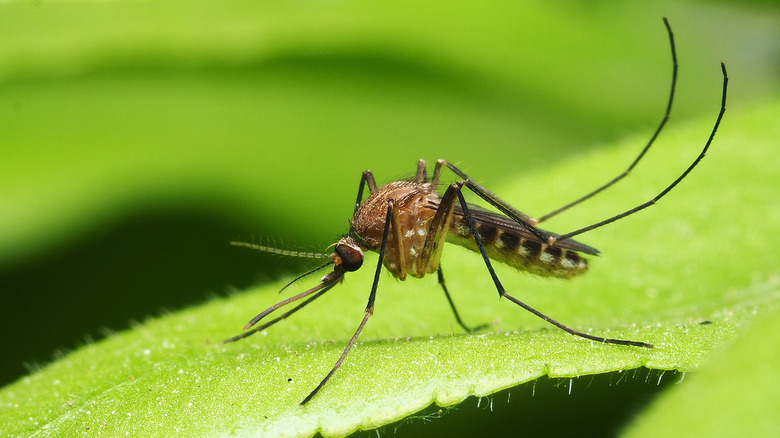Can Mosquito Bites Give You COVID-19?
Mosquitoes are bad enough when they bite us. Most people have a mild reaction to their bites, but some reactions can result in hives, fever, or swollen lymph nodes (via Mayo Clinic). That said, they become even nastier little monsters when they carry certain diseases, such as dengue, Zika virus, West Nile virus, Chikungunya virus, and malaria, per the Centers for Disease Control and Prevention (CDC). Bites from mosquitoes infected with any of these diseases can result in infections ranging from mild to severe, and some extreme cases can result in death. Mosquitoes can also carry heartworm and forms of encephalitis that can affect dogs, cats, birds, and horses, according to the American Mosquito Control Association.
As we learn to live with COVID-19, you might be wondering if you need to worry about mosquitoes carrying the virus. Researchers have thought about this, too, and have been working on finding an answer.
Research suggests mosquitoes can't transmit COVID
A 2020 study published in the journal Scientific Reports examining three species of mosquitoes found that even under extreme conditions, the COVID virus was unable to replicate in the insects. Researchers also pointed out that the disease could not be transmitted to people even if a mosquito had previously bit an infected person.
Dr. Stephen Higgs, associate vice president for research and director of the Biosecurity Research Institute at Kansas State University, told Medical News Today that scientists did not actually expect any other result because mosquitoes and other arthropods don't seem to become infected with coronaviruses. When asked if he thought mosquitoes could become infected with mutated COVID variants, Higgs said it was unlikely.
The best way to protect yourself against mosquito bites is to cover up and avoid being outside when they are active, which is typically in the evening. You can also use one of the many mosquito repellants available on the market, but you should avoid any products that contain more than 30% DEET (via Medical News Today).


